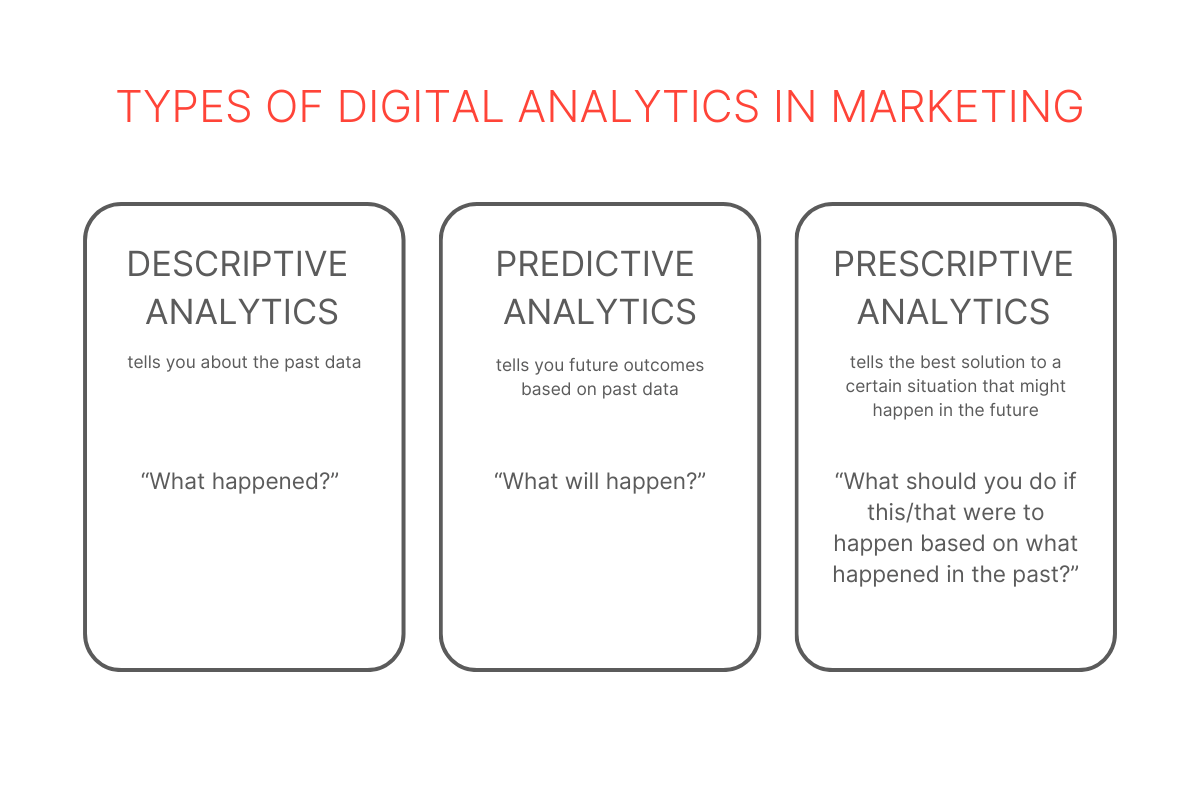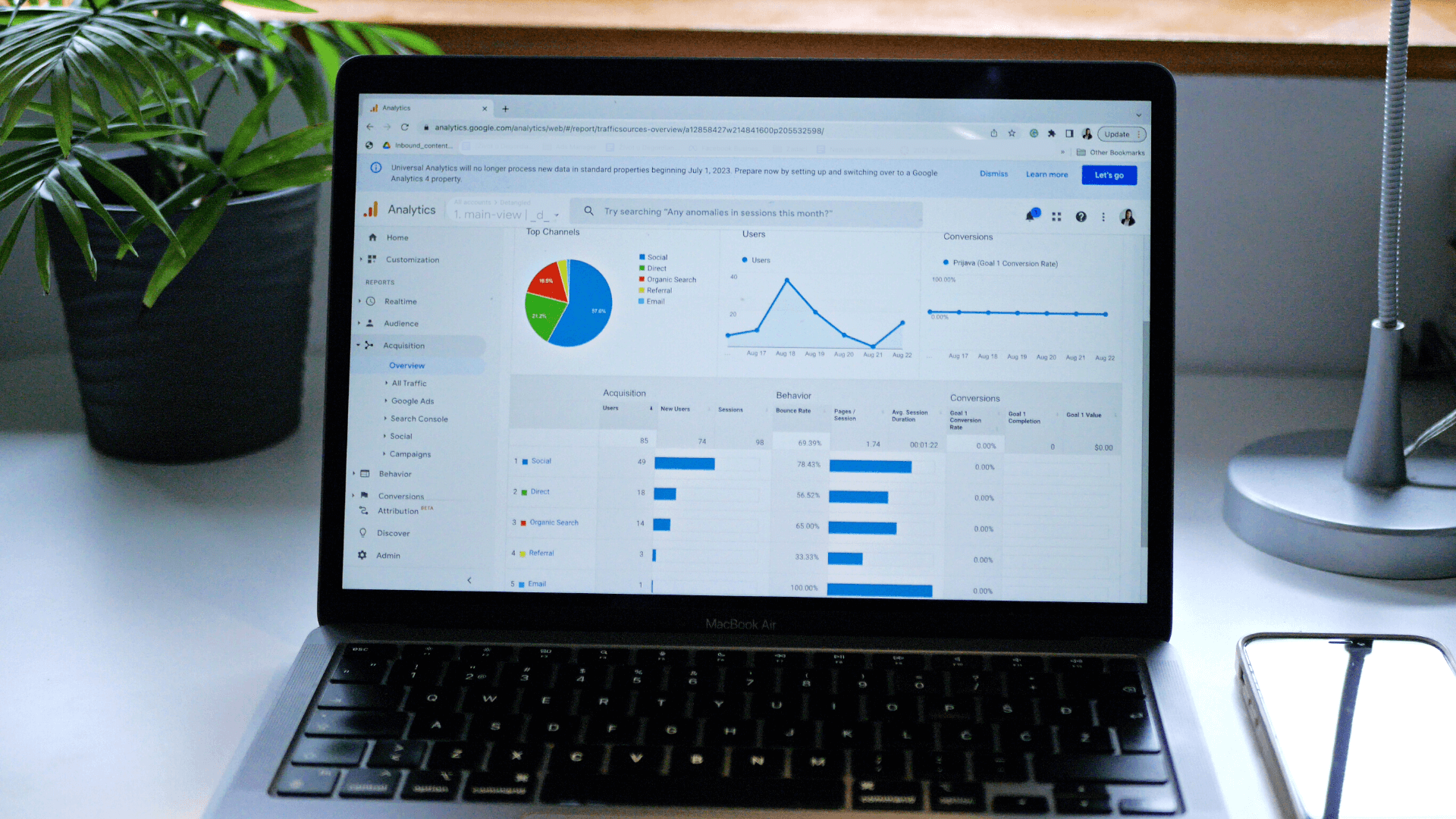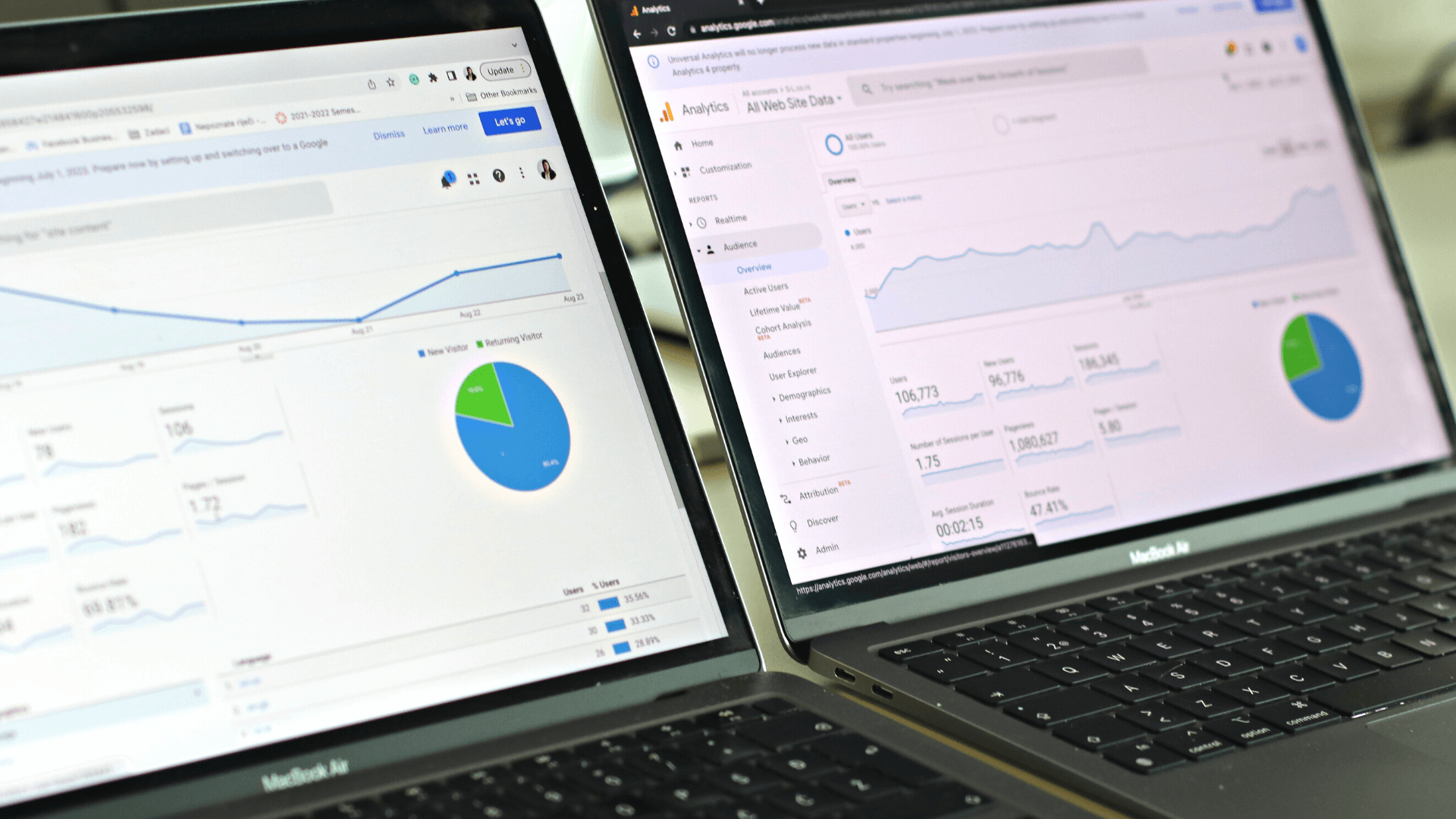Unlocking the power of digital marketing analytics
By equipping with valuable insights from the web and digital marketing analytics, marketers have the opportunity to gain a significant advantage over their competitors.
Marketers today are presented with an incredible advantage due to the abundance of data at their fingertips. This wealth of information opens up unparalleled possibilities to gain profound insights into audiences, accurately measure performance, and improve marketing strategies.
Let’s explore the power of digital marketing analytics ─ what it is, why it is important, and what types and tools of digital marketing analytics are out there.
What is digital marketing analytics?
To make things clear, digital marketing analytics is not the same as web analytics, and it is a common mistake to by definition put them in the same basket since both are used in marketing.
Digital marketing analytics looks at data that is not solely focused on the website. Digital marketing analytics is focused on marketing efforts as a whole, including other digital channels such as e-mail, social media, and others.
By gaining insights from digital marketing analytics, marketers can identify areas of weaknesses in each digital channel within their marketing mix. This enables them to enhance the effectiveness of their marketing strategy. This data not only serves as a helpful tool for assessing current marketing strategies but also for comparing past and present marketing activities to enhance future marketing initiatives.
To summarize, digital marketing analytics helps businesses identify the overall marketing effectiveness which is provided by assessment and comparison of data from different digital channels.
Importance of digital marketing analytics
Data-driven decision making
The insights marketers get from digital marketing analytics can lead to better decision-making, since decisions are based on actual data rather than assumptions.
For example, digital marketing analytics can help marketers identify channels, campaigns, or initiatives that deliver the highest returns on their investment. Marketers can then use those insights to prevent wasteful spending and maximize the impact of their marketing budgets by eliminating or leveraging down less effective marketing approaches and focusing on more effective marketing initiatives.
Improving customer experience
With vast data available across different digital channels, marketers can get a better understanding of their customers to tailor their marketing efforts accordingly.
By gaining insights into customer interests and preferences, marketers can create personalized experiences which will make customers feel understood, leveraging their overall experience, and contributing to brand loyalty.
Maximizing ROI
Besides identifying channels, campaigns, or marketing initiatives that deliver the highest return on investment, digital marketing analytics provide a certain level of agility. For example, real-time monitoring provides marketers the flexibility to make quick adjustments to their marketing initiatives to avoid unnecessary expenditures.
On the other hand, digital marketing analytics can also help marketers when experimenting with different approaches to their messaging, visuals, or targeting to determine the most effective approach that engages the audience and drives higher ROI.
Types of digital analytics in marketing
Digital marketing analytics can be sorted into the following marketing analytics categories:
- Descriptive analytics ─ tells you about the past data to give you better context on the current situation ─ “What happened?”
- Predictive analytics ─ tells you future outcomes based on past data ─ “What will happen?”
- Prescriptive analytics ─ recommends the most impactful thing to do if a certain situation happens in the future ─ “What should you do if this/that were to happen based on what happened in the past?”

Descriptive analytics
Descriptive analytics focuses on the past ─ it gives you insights into past performance. This can be useful to see how your current efforts stack against your past efforts.
Descriptive analytics is quite simple because any non-technical person can navigate this data. For that reason, this type of analytics is most often used among small businesses since they don’t need to hire specialists to acquire some insights about their business’s performance.
But this does not mean small businesses don’t need a specialist. Specialists will understand different metrics and find correlations between them which is essential to getting a wider angle on how different marketing efforts contribute to the achievement of business goals.
Predictive analytics
With predictive analytics, marketers can get insights into future outcomes which are based on past data. This often includes predictive modeling and machine learning algorithms. But this does not mean it will do all the work for you. There must be a specialist present since predictive analytics can be misleading at times due to data that can not be quantified.
Predictive analytics is operationally efficient and helps businesses foresee risks, making them better prepared in achieving their business growth.
Prescriptive analytics
Prescriptive analytics gives you a recommendation on the most impactful thing to do if a certain situation happens in the future, based on what happened in the past. It is often based on AI (artificial intelligence), machine learning algorithms, and business rules.
Let’s say you have an e-commerce website with women’s apparel. With the use of prescriptive analytics, there’s a possibility of identifying user behavior patterns ─ for example, “this customer behavior pattern likes these types of dresses and are likely to buy this other matching item”. This can then help with displaying customizable messages that aim to upsell.
Digital marketing analytics tools
Social media analytics tools
Social media analytics tools provide a collection of data that represents the performance of your social media accounts. By utilizing social media analytics tools, marketers can make sure they’re achieving their social media goals, and determine what works and what doesn’t, but also foresee trends and crises.
If you’re a marketer, then you probably know that every social media platform comes with its own unique data reporting. These reports include various digital marketing metrics which help you assess your social media efforts.
But, there are also external tools that can help you combine multiple reports from different social media platforms into one place, and some of these tools often include additional perks such as social listening.
Some of the social media analytics tools are:
- Hootsuite Analytics
- Sprout Social
- Buffer
- Zoho Social, etc.
E-mail analytics tools
If you’re running e-mail campaigns (and you should), e-mail marketing tools will help you track user interactions with your e-mail campaigns. Because knowing who opened your e-mail is simply not enough.
Measuring success of e-mail campaigns is rather uncomplicated with e-mail marketing tools, and metrics like open rate, click-through rate, unsubscribe rate, or conversion rate can help you utilize your e-mail marketing efforts.
Some of the e-mail marketing tools which will provide valuable insights into your e-mail campaigns:
- Hubspot E-mail Marketing
- Mailchimp
- NotifyVisitors
- Sender
- EmailAnalytics (for Gmail) etc.
Pay-per-click (PPC) analytics tools
You first thought of Google Ads, didn’t you? Yes, Google Ads is a one pay-per-click (PPC) advertising platform that provides data into your Google Ads. PPC analytics tools are valuable resources that marketers rely on to streamline and enhance their pay-per-click (PPC) advertising efforts.
PPC analytics tools aid in analytics, bid management, competitor research, keyword tracking, and the holistic optimization of ads. And most SEO analytics tools will also provide you with valuable insights for your PPC efforts such as keyword volumes and CPC (cost per click).
By making use of PPC analytics tools, marketers can efficiently navigate the world of PPC campaigns while achieving optimal results.
There are plenty of digital marketing analytics tools out there. The realm of digital marketing analytics tools is an ever-changing environment that consistently introduces new and inventive options. For marketers, it is imperative to thoroughly explore and assess the array of tools at hand to identify the ones that align most effectively with their particular requirements and goals.
Don’t overlook the valuable data of digital marketing analytics. By embracing the power of digital marketing analytics, you can not only make better decisions but also gain a competitive edge in a constantly changing marketing environment. Also, remember to use web analytics tools like Google Analytics 4, along with digital marketing analytics tools.
Our Performance Marketing Team can help you unlock the power of digital marketing analytics. We cover it all, from research and goal definition to strategic implementation and optimization. Get in touch with our team of experts!



